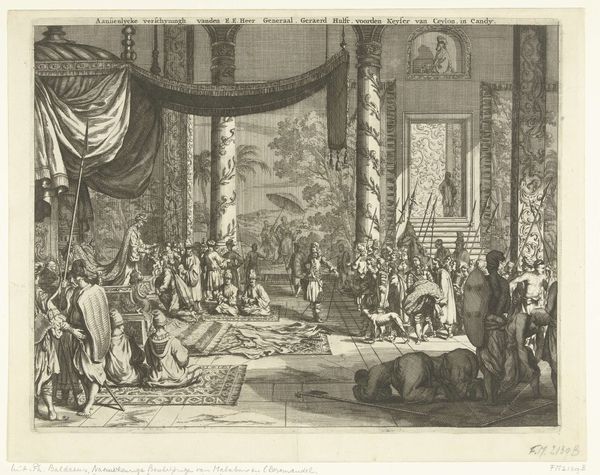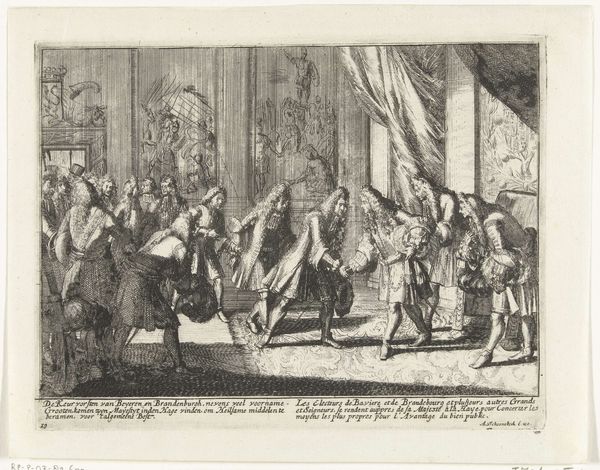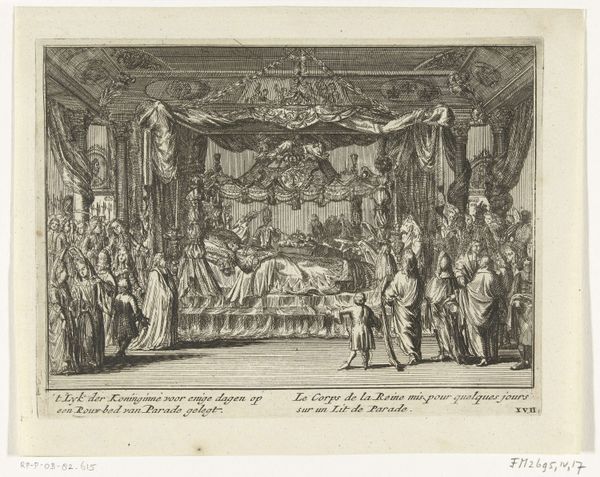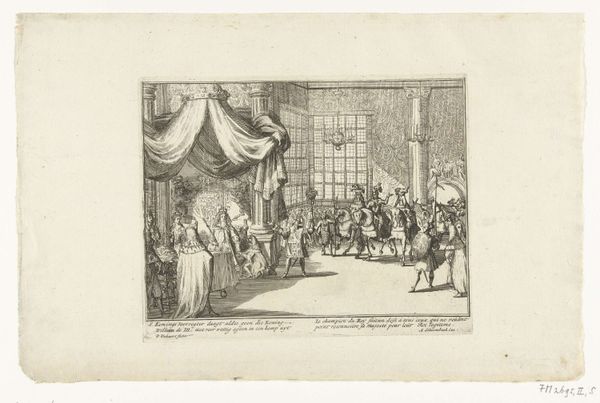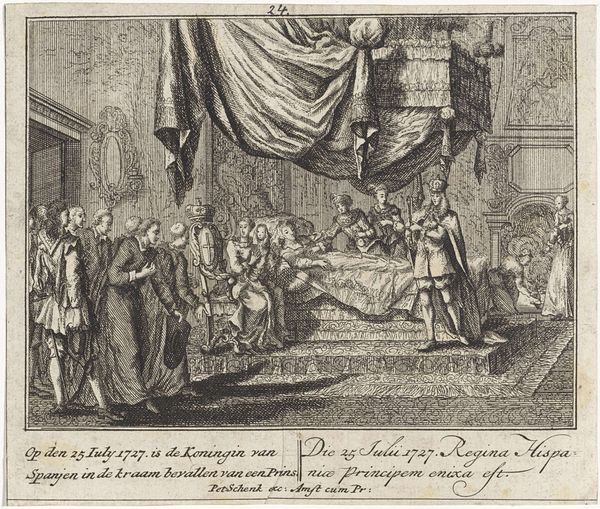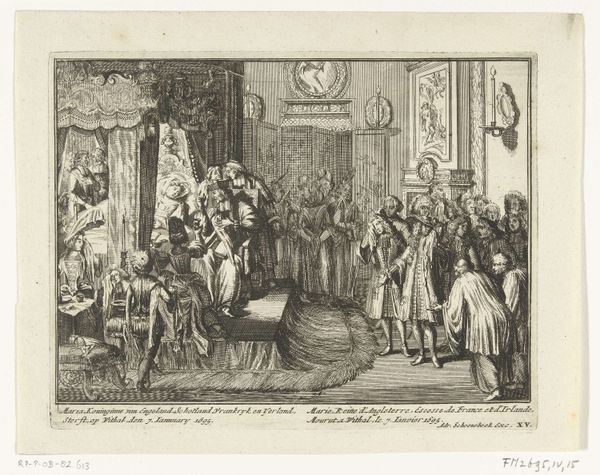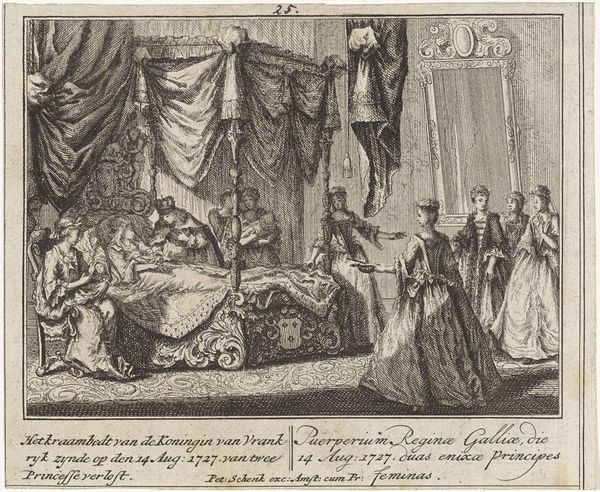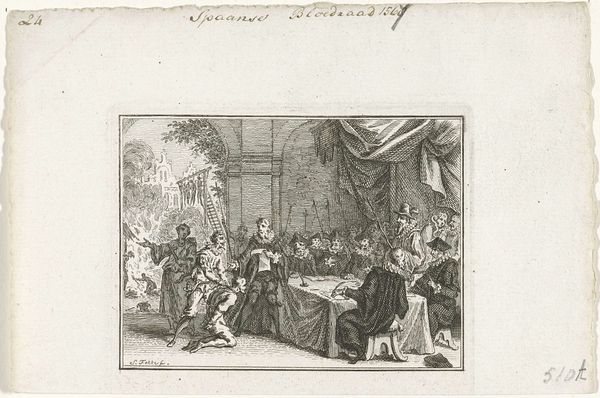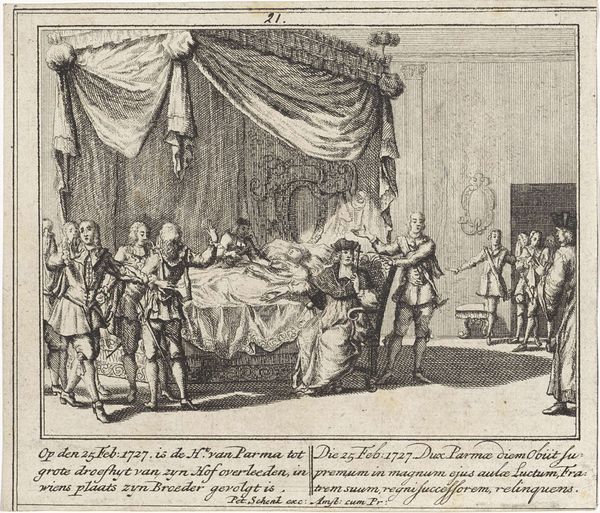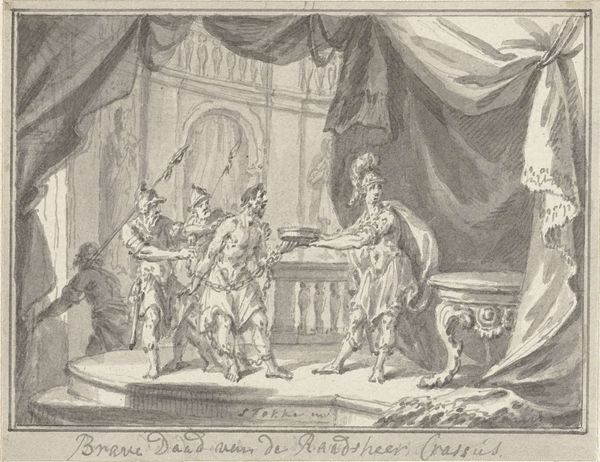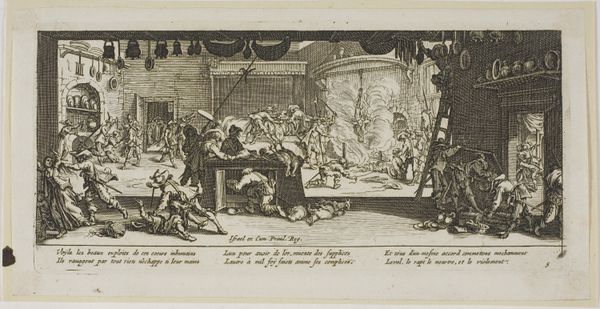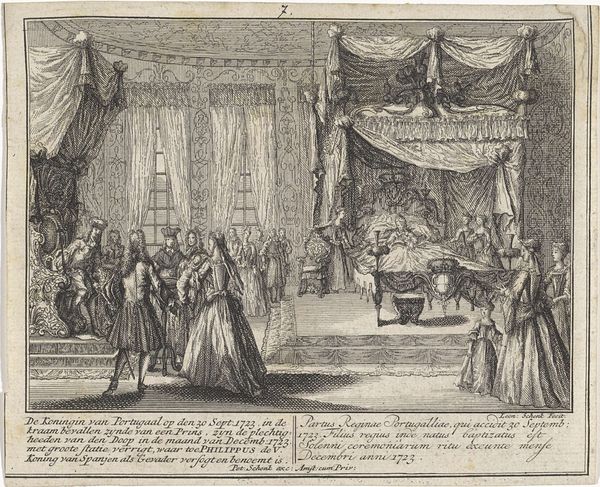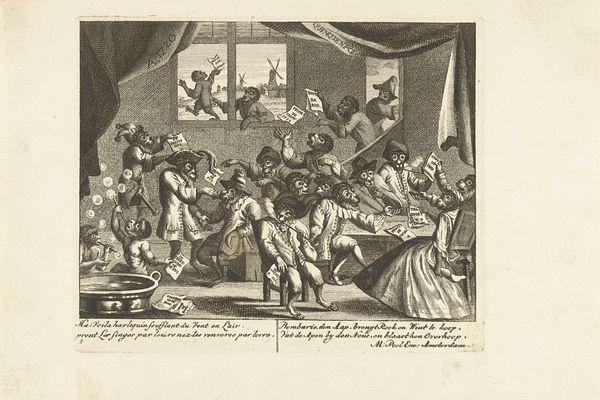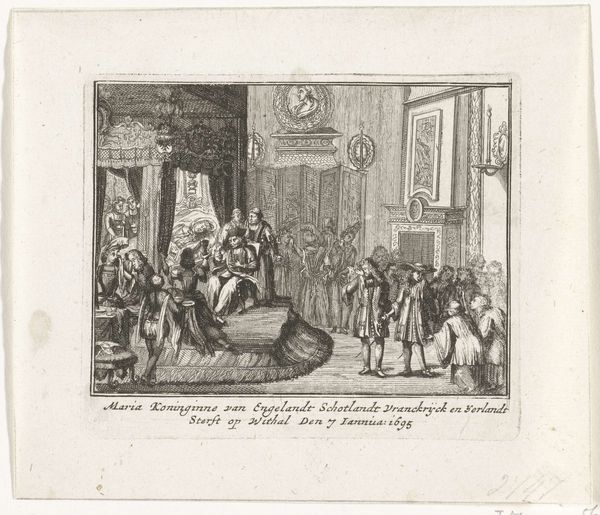
Dimensions: height 147 mm, width 207 mm
Copyright: Rijks Museum: Open Domain
Pieter Tanjé’s etching, "The Farcical Discovery," captures a chaotic scene rife with social commentary. A dramatic discovery is at its center: figures intertwined on the floor, caught in what seems to be an adulterous act. This motif echoes throughout art history, from ancient Roman frescoes depicting illicit affairs to Renaissance paintings where hidden encounters lead to dramatic revelations. Observe the figure reacting to the scene; the stance, a posture of shock and accusation, is reminiscent of similar gestures in theatrical performances across centuries. Note the voyeuristic quality, where we, the viewers, become complicit in this transgression. This element taps into our collective unconscious, evoking primal instincts related to societal norms, secrets, and the forbidden. The symbolism evolves, reflecting changing attitudes toward morality and societal roles. The recurrence of such scenes in art serves as a mirror, reflecting back our own evolving understanding and acceptance—or condemnation—of human desires.
Comments
rijksmuseum over 2 years ago
⋮
The Naughty Tales Told by Clement Marot were assembled stories supposedly told by the 16th-century French poet. This print illustrates one such tale, in which the man surprises his wife involved in an orgy. She falls from her chair in shock because she thought he had gone hunting. The detail of the four feet peeping out from under the bed covers adds a burlesque twist.
Join the conversation
Join millions of artists and users on Artera today and experience the ultimate creative platform.
